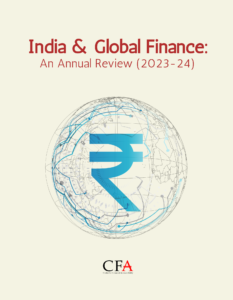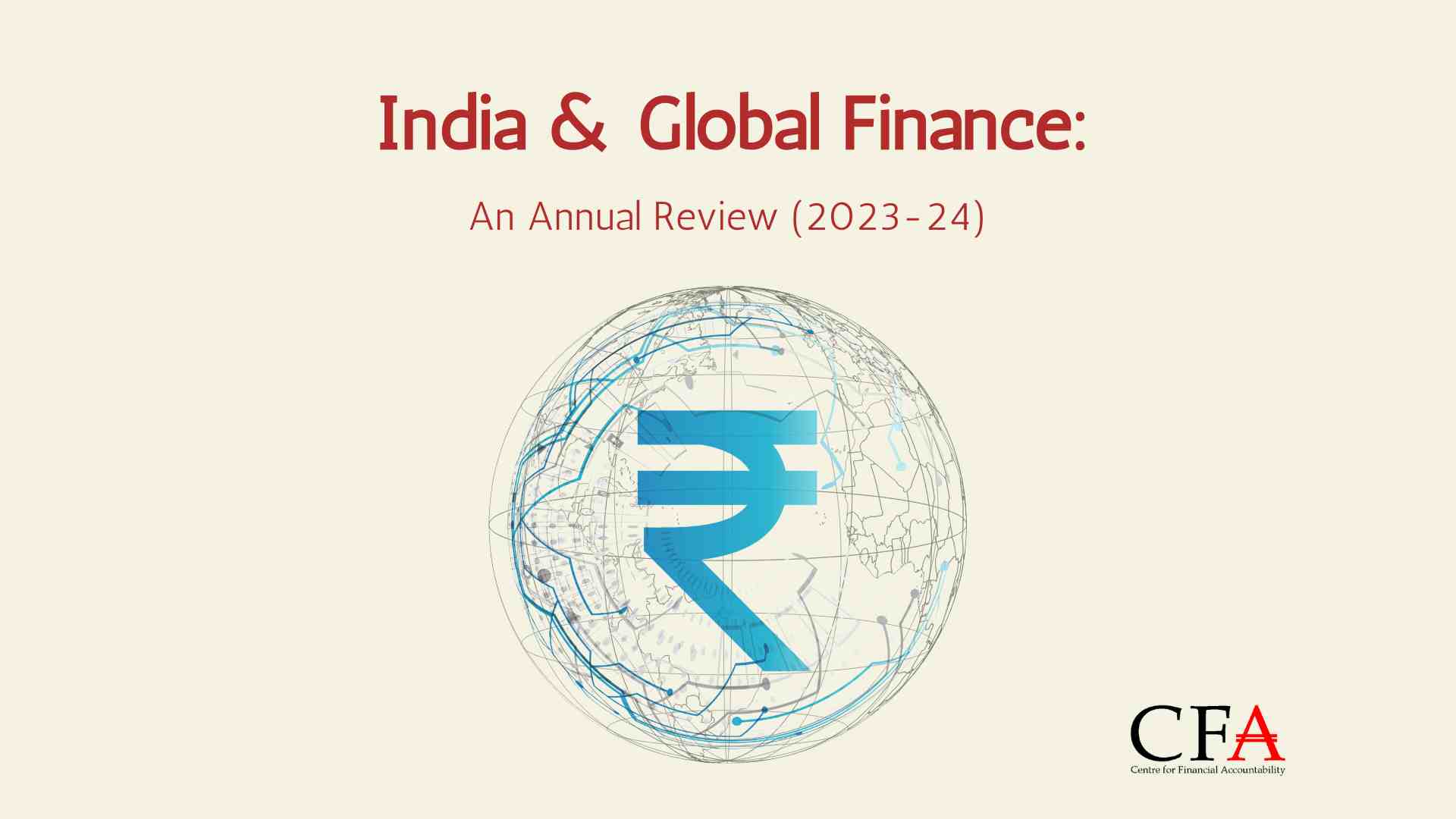 The first issue of India & Global Finance: An Annual Review for 2023-24 comes at a juncture where, on the one hand, India is flexing its muscle to be a global leader and on the other India is vying for foreign investments in all major sectors.
The first issue of India & Global Finance: An Annual Review for 2023-24 comes at a juncture where, on the one hand, India is flexing its muscle to be a global leader and on the other India is vying for foreign investments in all major sectors.
The Presidency of G20 in 2023 probably was the NDA government’s high point to announce its arrival as a global leader, or that’s what the government believed – it did not leave any stone unturned to make it a grand political spectacle, holding over 200 G-20 related events around the country while curbing civil and political rights and carrying out forced evictions wherever the events happened.
The G20 Presidency came to India at a crucial moment in the history of the world economy – a slow recovery from the COVID-19 pandemic, a looming climate crisis, financial instability and debt distress in the third world nations, the Russia-Ukraine war and the ongoing genocide in Palestine – all of this amid declining multilateralism.
India’s offer to mediate in the Russia-Ukraine war and the expectation from Palestine that “India will play the role of a mediator between Israel and Palestine” are used as signs of its global powers. It’s a different matter that India’s position on state-backed violence inflicted on Palestine has changed over a period of time, with it clearly taking a pro-Israel position.
According to the 2023 World Investment Report of United Nations Conference on Trade and Development (UNCTAD), India was the third largest recipient of foreign direct investment (FDI) in greenfield projects in the world in 2022. FDI flows into India rose 10 per cent from $44.7 billion in 2021 to $49.3 billion in 2022, it said. The report also noted that India was the second-largest recipient of international project financing in the world in 2022. Sovereign wealth funds, real estate investment trusts and private equity funds alone invested $146 bn between 2016 and 2020 in sectors like oil & gas, renewable energy projects, real estate and large infrastructure projects.
With all of these rapidly changing imprints of international finance in India and the global south and with ever increasing emphasis on the need for foreign direct investment for the development of the economy in India since 1991 and especially since the change of guard in 2014, very little attention has been paid to review these developments on an annual basis. The Annual Review is an attempt to bring this into focus and keep a yearly track of this dynamic area of study.
This Annual Review aims to bring together the research, analysis and findings on the broader issues of international finance, development and global political economy in ways that are equal amounts scholarly but also written with a popular flair for an intelligent layperson. We also hope that a yearly publication such as this is of good use to friends in civil society organisations and those rallying popular movements on these issues. The first issue has contributions by C.P. Chandrasekhar, Shalini Bhutani, Harjeet Singh, Dinesh Abrol, Biswajit Dhar, Suranjali Tandon, and Subhash Chandra Garg.
Read and Download the Review here: India & Global Finance An Annual Review (2023-24)
Centre for Financial Accountability is now on Telegram and WhatsApp. Click here to join our Telegram channel and click here to join our WhatsApp channel and stay tuned to the latest updates and insights on the economy and finance.

